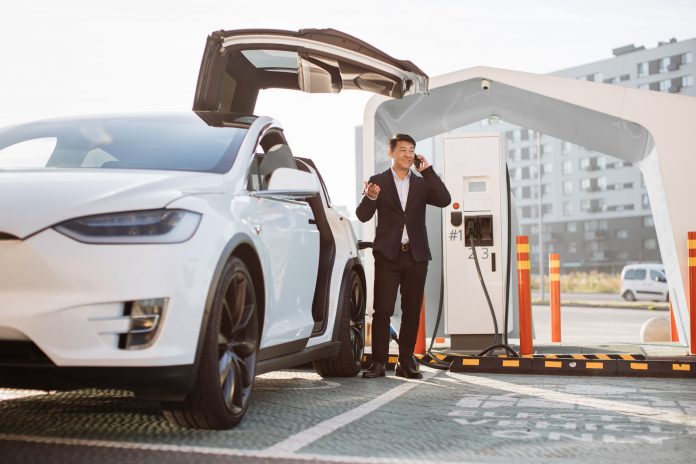The automotive industry is encountering a significant shift, not necessarily due to transformative changes, but because of the challenging reality that consumers haven’t fully embraced an EV-centric future.
Government mandates pushing EVs have hit a roadblock, with many consumers still waiting to commit fully. Sales of electric vehicles have stagnated, and some consumers are even returning to internal combustion engine (ICE) vehicles.
This presents a unique opportunity for hybrids and dealers, which offer a middle ground between traditional gas-powered cars and the promise of electric technology. Hybrids are not just about fuel savings—they represent a bridge to a more advanced automotive future. They provide a steppingstone for consumers who need time to adapt before fully transitioning to EVs or hydrogen power.
Current Market Dynamics and Trends
The hybrid market is surging, with sales figures reflecting the shifting consumer preference towards more flexible and familiar options. Unlike fully electric vehicles, hybrids cater to the desire for efficiency and performance while retaining some traditional ICE vehicle aspects. The rise of hybrid sales highlights how dealerships can leverage this trend to maximize their profitability.
Profitability of Hybrid Sales vs EVs
Dealerships are finding that hybrids present a compelling opportunity for dealerships. While electric vehicles are often seen as the future, hybrids can still generate significant income for dealerships.
They offer a unique blend of benefits that address current consumer preferences and dealership profitability. Here’s how:
- Consumer Preference and Hybrid Sales: Hybrids cater to consumers who are not yet ready for full EVs but seek better fuel efficiency. This gradual transition helps dealerships maintain steady sales by appealing to a broader customer base that values fuel economy and ICE technology’s familiarity. By offering hybrids, dealerships can continue engaging customers who are slowly transitioning to electric technologies.
- Profit Margins: Hybrid vehicles often have a higher price point than traditional ICE vehicles but may not reach the same premium levels as high-end EVs. This positioning allows dealerships to benefit from favorable profit margins. While EVs might have a higher ticket price, hybrids offer a profitable middle ground that combines affordability with advanced technology.
- ICE-Related Income: One significant advantage of hybrids is that they continue to generate revenue through traditional ICE-related services, such as maintenance and repairs. Unlike fully electric vehicles, which require different servicing approaches, hybrids still rely on ICE components, providing a steady income stream for dealerships through routine maintenance and repairs.
- Market Positioning: Hybrids can strategically position dealerships by bridging the gap between ICE and EVs. This positioning helps attract a diverse customer base, potentially increasing showroom traffic and overall sales. By offering hybrids, dealerships can cater to customers who are hesitant about fully electric vehicles but are interested in more efficient and technologically advanced options.
- OEM and Manufacturer Incentives: Dealerships may receive various incentives or financial benefits from OEMs for selling hybrids. These incentives can impact profitability by reducing costs or offering bonuses to meet sales targets. Unlike some EV programs, which may have stringent requirements or lower margins, hybrid programs can offer more accessible and beneficial dealership terms.
Strategies for Dealerships: Marketing and Inventory Management
Hybrid vehicles present a unique opportunity for dealerships to bridge the gap between traditional ICE and the EV market. To effectively capitalize on this trend, dealerships must deploy targeted marketing and inventory management strategies:
- Highlight Hybrid Advantages: Focus on the unique benefits of hybrids, such as their blend of fuel efficiency and performance. Emphasize how they provide a smoother transition from ICE to EVs and cater to a broader range of consumer needs.
- Educate Your Sales Team: Ensure your team is well-versed in the advantages of hybrids and can effectively communicate these benefits to potential buyers. Training should cover both the environmental and performance aspects of hybrid vehicles.
- Manage Hybrid Inventory: If possible, keep a balanced inventory reflecting consumer demand for hybrids and ICE vehicles. This approach ensures your dealership can cater to diverse customer preferences and maintain a steady sales flow.
- Leverage Hybrid Technology: As hybrids often involve advanced technology, use this as a selling point. Highlight features like regenerative braking and advanced energy management systems that enhance driving efficiency and performance.
Consumer Education: Hybrids as a Gateway to Future Technologies
Hybrids serve as an educational tool for consumers who may not yet be ready for fully electric vehicles. By understanding how hybrids work and experiencing their benefits firsthand, consumers are more likely to transition smoothly to EVs or hydrogen power in the future. Dealerships can play a crucial role in this educational process, helping buyers appreciate the value of hybrids and their place in the broader automotive evolution.
Bridging the Gap
Hybrids emerge as a practical and profitable solution for hybrid-friendly OEM dealerships like those supporting Toyota. They address the current limitations of fully electric vehicles while offering a pathway to future technologies.
Dealerships that embrace and effectively market hybrids can capture a significant market share, providing value to customers who seek a balance between traditional and advanced automotive options. By leveraging hybrids, dealerships enhance their revenue streams and position themselves as leaders in the evolving automotive landscape.



